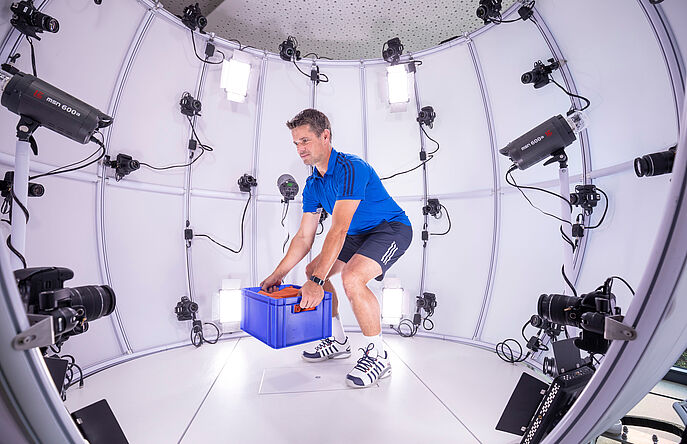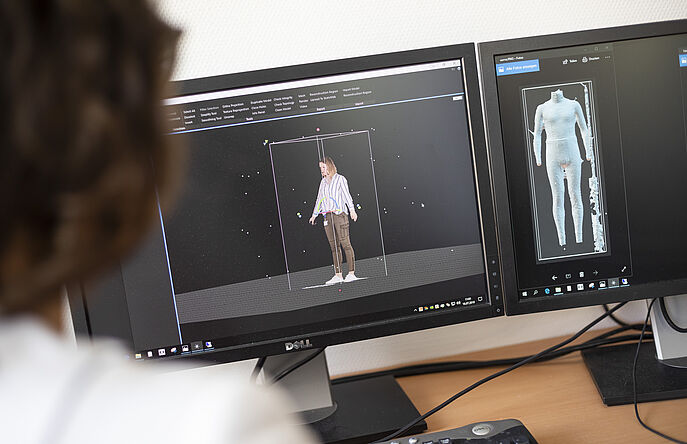BÖNNIGHEIM, GERMANY (Oct. 17, 2019) – Hohenstein’s new 4D body scanner will be used in a series of research projects. Each project aims to advance knowledge and processes throughout the apparel industry.
One such project, “Mobility Restrictions,” is funded by the German Federation of Industrial Research Associations (AiF). Scheduled to complete in October 2020, it will focus on body measurement changes during movement. The aim of the Hohenstein scientists is to develop a standard method of analyzing how a clothing item restricts movement.
Scanning in 4D shows body shape and size for the intended customer, and thus reveals the changes in body shape during relevant motions. It shows both the impact of movement on the garment and the garment’s impact on movement. Range of motion, particularly in sportswear and workwear, can be analyzed for improved function.
4D data with 3D visualization shortens or eliminates prototyping time and cost. It creates better data for size chart creation and pattern making. Better patterns lead to less material and product waste. Realistic size data leads to better fitting garments. Improving fit, function and ergonomic comfort affects return rates, brand loyalty and profits.
###
With more than 40 offices and laboratories worldwide, Hohenstein is an international testing partner in the textile industry. Hohenstein’s research centers around the interaction between textiles, humans and the environment. It is a founding member and leading provider of the OEKO-TEX® portfolio of services such as the STANDARD 100 by OEKO-TEX® certification, the international standard for safe textiles, and is certified by the U.S. Consumer Products Safety Commission as a third-party, independent laboratory for CPSIA compliance verification. Hohenstein.US
CARHARTT + HOHENSTEIN 4D SCANNING PROJECT - WATCH 2021 CASE STUDY


